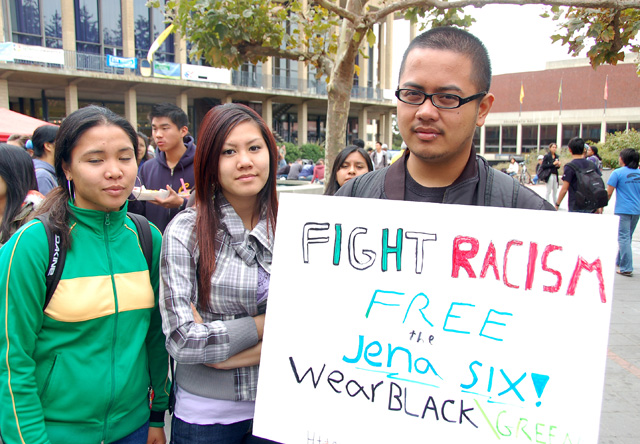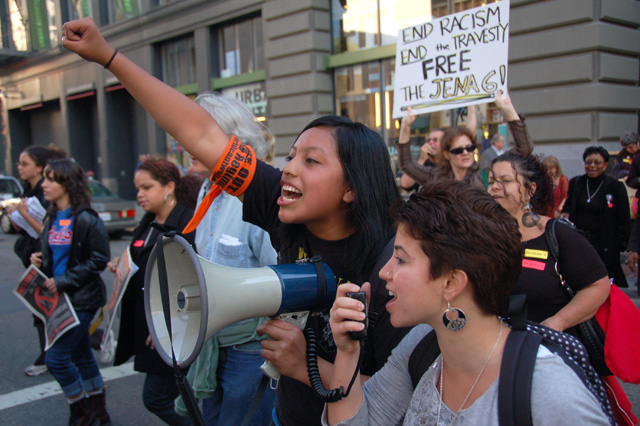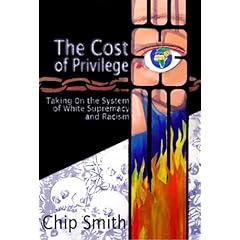 Like longtime electoral and cultural activist Eddie Wong over 2 decades ago I was inspired by and became a part of the historic Rainbow Coalition campaigns in 1984 and 88. And I too have become active in the Obama '08 campaign with some of the same hopes as we had 20 years ago when our Jesse Jackson for President campaign won some seven million popular votes and registered 2 million new voters.
Like longtime electoral and cultural activist Eddie Wong over 2 decades ago I was inspired by and became a part of the historic Rainbow Coalition campaigns in 1984 and 88. And I too have become active in the Obama '08 campaign with some of the same hopes as we had 20 years ago when our Jesse Jackson for President campaign won some seven million popular votes and registered 2 million new voters.Though Obama has nowhere near the grassroots field campaign, or progressive vision/politics as Jackson had in the 80's, I believe his campaign gives our movements another historic opportunity, as Wong states, to "build bridges across constituencies and generations" and "for (progressive) change, for hope and for a better America."

Twenty years ago, as I stood in the bitter cold in a parking lot in Sioux City, Iowa, I saw a sight I thought I’d never see. A crowd of white meat-packers, big beefy men and their wives and children, shuffled their feet in quiet anticipation. They shielded their eyes against the low winter sun, stamping their feet for warmth on the frozen ground. They were waiting to hear my boss, the Reverend Jesse L. Jackson, a candidate for the Democratic nomination for president of the United States.
No one knew what to expect from this unlikely meeting of the Southern-born civil rights veteran and these heartland folk who had been on strike for months and were now down to their last savings. As Jackson began to speak, I could see heads nodding as he told them that their sacrifice was redemptive, and that they were not alone in their fight for fair wages and safe working conditions. He took their strike and cast it against the larger economic violence that came out of President Reagan’s
union-busting practices, and the failures of a trickle-down economy that brought wealth to the rich and poverty to the working poor. As Jackson spoke, he ignited a sense of pride and dignity in these men and women. He brought them to their feet with tears in their eyes with the cry, “Keep hope alive!”
Now, Senator Barack Obama is standing with the workers, farmers, students, elderly and others in Iowa, preaching a similar message of hope and offering a new way forward for our country. Just as Jackson offered a break from Reaganomics and repression, Obama would take us away from the destruction of Bush’s war policies and restore our democracy. Just as Jackson offered a message of hope across racial and class divides, Obama is building a bridge across generations and constituencies.
Obama is the new messenger of hope, justice and equality. His call for ordinary people to take back their government from the lobbyists and big business clients, who have reaped mega-profits through backroom deals, is exactly what we need at this critical moment when economic inequality is at an all-time high. His pledge to engage directly with foreign leaders who oppose us and with allies who should be our partners in solving intractable conflicts is exactly what we need. We need to build bridges and tear down walls.This moment in United States history poses a turning point that can set the course
for decades. The crises posed by global warming, a protracted struggle against Islamic extremists, the deepening inequality in our country, our deteriorating infrastructure and declining educational system, and our tarnished international reputation cry out for new answers and new approaches. Obama is the best person to meet the challenges of this historical moment. He has shown a deep grasp of issues and, more importantly, exhibited the ability to listen to other points of view and find ways to build alliances across historic barriers.
Obama is the man with the vision, clarity and ability to meet the challenges of our times. He is the man, and this is the moment — for change, for hope, for a better
America.
Eddie Wong is a member of the Asian American and Pacific Islander Leadership Council for Senator Obama. He was the national field director of the 1988 Jesse Jackson for President campaign. He is a media and political consultant based in Oakland, Calif.





























